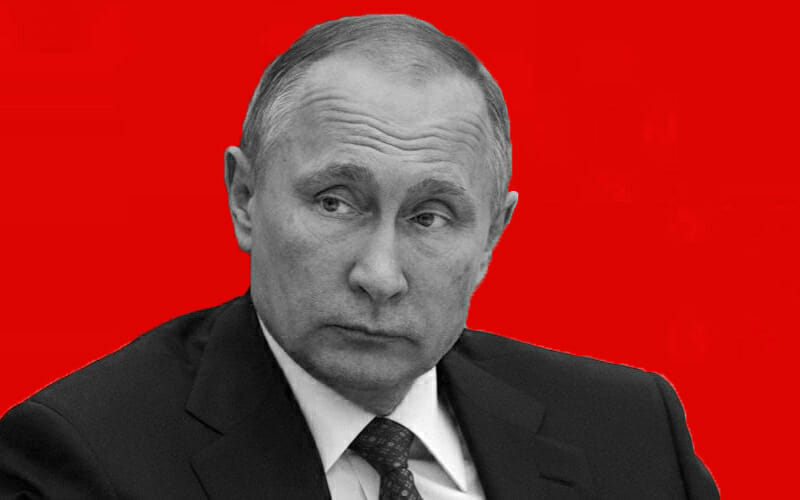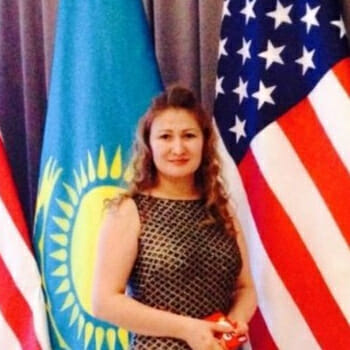
What is the Price of the Next Cold War?
It was near sunset. Some people stood motionless and silently watched, others rushed to run towards the explosion. Those who ran either later died – or could no longer walk.
The occasion was the first Soviet atomic bomb test at the Semipalatinsk site in East Kazakhstan in August 1949. During the Cold War, the Soviet Union carried out more than 500 explosions of nuclear devices in Kazakhstan.
The consequences were profound. They continue to affect three generations of Kazakh people. Radiation contaminated settlements near the site, along with water and pastures for grazing livestock. Radionuclides accumulated in milk and meat, vegetables and fruits. Through water and food, people received an additional dose of radiation. Cases of cancer, heart diseases, leukemia, and disorders of the central nervous system increased dramatically. So did mortality. The life expectancy in the Semipalatinsk region today is seven years less than in the rest of Kazakhstan. The level of genetic mutations and birth defects among residents is high. The question for the people of Kazakhstan is how to preserve their health and future. The answer is that Kazakhstan must preserve its independence.
In 1989, nuclear tests at the Semipalatinsk test site stopped. The new President of an independent Kazakhstan decreed the site closed in 1991, exactly 42 years after the first explosion there. Yet Kazakhstan’s independence has provided only a brief sense of relief.
Kazakhstan today is a close strategic ally and partner to Russia. It feels Russian breath to the nape. For this reason, the government of Kazakhstan turns a blind eye to Russia’s security infringements. It rented the Baikonur Cosmodrome to Russia in 1991, for fifty years.
Furthermore, Russia’s unpredictable policies creates problems and potential threats for Kazakhstan. In 2014, at the Seliger Youth Forum, Putin claimed that Kazakhstan has never been a state, stirring up the population.
There is a proverb that the fish rots from the head down. After Putin’s remarks, articles by Russian authors distorting the current reality, as well as the history of Kazakhstan, became more frequent. Some articles spelled out direct threats. For example, the title of one was, “If Kazakhstan does not become a federation, then it can wait for the fate of Ukraine.” The title of the article itself is propaganda, designed to violate the territorial integrity of the nation and undermine state security. It has provoked well-grounded and justified negative reactions among many Kazakh people.
As the saying goes, “one case is just a case. Two similar cases are possible coincidence. And three similar cases, this is a trend.” The fact of these publications is an important indicator of a very dangerous trend, which may pose a threat to Kazakhstan’s future.
In response, official Astana diplomatically pointed out to Putin his mistake, solemnly celebrating in 2015 the 550th anniversary of the formation of the Kazakh Khanate at the state level.
Another big reform is the rejection of Cyrillic alphabet. Kazakhstan plans to adopt a single Latin alphabet of the Kazakh language by 2025. In his speech, President Nazarbayev announced the transition of the country from the Cyrillic alphabet to the Latin alphabet as part of Kazakhstan’s development strategy. Yet there are always costs. The language reform alone will cost Kazakhstan at the initial stage $300 million per year.
The Kazakh people also understand the adverse effect of sanctions. Nowadays, all sanctions imposed on Russia have a ripple effect on Kazakhstan’s economy. Implications include a fall in demand for Kazakh raw materials, the depreciation of national currency (the tenge), the growth of Kazakhstan’s external debt, and a decline in people’s incomes.
Despite cost worries, it is the fear of deprivation of independence that makes the people of Kazakhstan more cohesive. They try not to buy Russian propaganda and avoid instability within their country. They realize that, if they are to build a better and healthier future for their country, Kazakhstan must preserve its independence.

